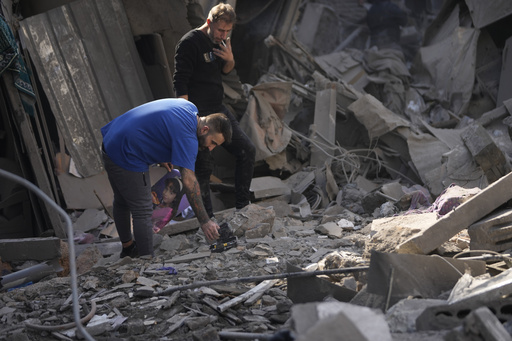BEIRUT — A recent Israeli airstrike targeting a Lebanese army facility resulted in the death of one soldier and injuries to 18 others, as reported by the Lebanese military on Sunday.
This incident marks the latest event in a series of Israeli strikes that have claimed over 40 lives among Lebanese soldiers, even as the army has mostly refrained from direct involvement in the ongoing conflict between Israel and Hezbollah.
The Israeli military has not responded immediately to this latest claim, consistent with its previous assertions that attacks on Lebanese forces were unintentional and that the military is not considered an objective in its operations against Hezbollah.
Lebanon’s caretaker Prime Minister, Najib Mikati, has condemned the airstrike, describing it as an attack on efforts for a ceasefire led by the United States. He characterized the incident as a “direct, bloody message” dismissing all current endeavors and discussions aimed at resolving the conflict.
In a statement released by his office, Mikati remarked, “(Israel is) again writing in Lebanese blood a brazen rejection of the solution that is being discussed.”
The airstrike occurred in southwestern Lebanon along the coastal route between Tyre and Naqoura, an area that has experienced intense fighting between Israeli forces and Hezbollah militants.
Following the Hamas assault from Gaza on October 7, 2023, which triggered the ongoing war, Hezbollah has responded with rocket and drone attacks directed at Israel. The group has framed its actions as support for the Palestinian cause and Hamas, with backing from Iran for both factions.
In retaliation, Israel has conducted numerous airstrikes since the onset of rocket fire, and a low-level conflict escalated into full-blown warfare in September, highlighted by extensive air raids throughout Lebanon and the targeting of Hezbollah’s senior leadership, including their prominent figure, Hassan Nasrallah.
A wave of Israeli airstrikes hit central Beirut recently, killing at least 20 people and injuring 66, as per reports from Lebanon’s Health Ministry. Hezbollah has continued to launch regular strikes at Israel, causing civilians to scramble for safety and resulting in occasional fatalities and injuries on the Israeli side.
The Health Ministry in Lebanon reports that more than 3,500 individuals have lost their lives due to Israeli assaults in the country, while approximately 1.2 million people—about one-quarter of the population—have been displaced by the conflict.
In Israel, around 90 soldiers and nearly 50 civilians have died as a result of the ongoing bombardments in the northern region and during battles resulting from Israel’s ground invasion that commenced in early October. Approximately 60,000 residents have had to evacuate from northern Israel due to the fighting.
The Biden administration has been actively working for months to mediate a ceasefire, with U.S. envoy Amos Hochstein arriving in the region last week to continue negotiations.
A proposed agreement would facilitate the withdrawal of both Hezbollah and Israeli forces from southern Lebanon, specifically below the Litani River, in accordance with a U.N. Security Council resolution that concluded the 2006 war. Under this arrangement, Lebanese troops would secure the region with assistance from U.N. peacekeepers.
While the Lebanese army is emblematic of the nation’s religious diversity and is generally respected as a key national institution, it lacks the military strength needed to challenge Hezbollah or effectively fend off Israeli incursions.
Home World Live International Crisis Israeli airstrike targets Lebanese military base, resulting in one death and injuring...
